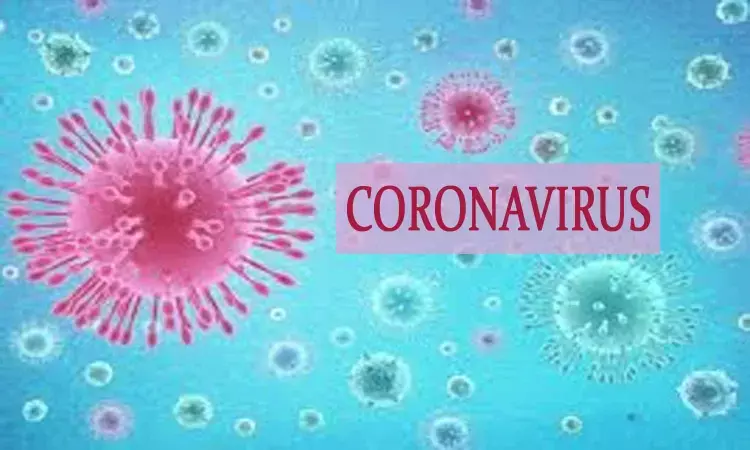- Home
- Medical news & Guidelines
- Anesthesiology
- Cardiology and CTVS
- Critical Care
- Dentistry
- Dermatology
- Diabetes and Endocrinology
- ENT
- Gastroenterology
- Medicine
- Nephrology
- Neurology
- Obstretics-Gynaecology
- Oncology
- Ophthalmology
- Orthopaedics
- Pediatrics-Neonatology
- Psychiatry
- Pulmonology
- Radiology
- Surgery
- Urology
- Laboratory Medicine
- Diet
- Nursing
- Paramedical
- Physiotherapy
- Health news
- Fact Check
- Bone Health Fact Check
- Brain Health Fact Check
- Cancer Related Fact Check
- Child Care Fact Check
- Dental and oral health fact check
- Diabetes and metabolic health fact check
- Diet and Nutrition Fact Check
- Eye and ENT Care Fact Check
- Fitness fact check
- Gut health fact check
- Heart health fact check
- Kidney health fact check
- Medical education fact check
- Men's health fact check
- Respiratory fact check
- Skin and hair care fact check
- Vaccine and Immunization fact check
- Women's health fact check
- AYUSH
- State News
- Andaman and Nicobar Islands
- Andhra Pradesh
- Arunachal Pradesh
- Assam
- Bihar
- Chandigarh
- Chattisgarh
- Dadra and Nagar Haveli
- Daman and Diu
- Delhi
- Goa
- Gujarat
- Haryana
- Himachal Pradesh
- Jammu & Kashmir
- Jharkhand
- Karnataka
- Kerala
- Ladakh
- Lakshadweep
- Madhya Pradesh
- Maharashtra
- Manipur
- Meghalaya
- Mizoram
- Nagaland
- Odisha
- Puducherry
- Punjab
- Rajasthan
- Sikkim
- Tamil Nadu
- Telangana
- Tripura
- Uttar Pradesh
- Uttrakhand
- West Bengal
- Medical Education
- Industry
Marine red algae may help combat COVID-19: Reliance researchers

New Delhi, April 12 (IANS) Compounds derived from marine red algae could be used as a coating material on the sanitary items and also for the production of antiviral drugs to fight COVID-19, suggests a study by scientists at Reliance Industries Ltd.
The researchers said that products derived from natural sources, such as flora and fauna, bacteria, fungi, and higher plants have great potential to fight diseases caused by viruses.
Polysaccharides -- such as agar, alginates, fucoidan, carrageenan, rhamnan sulfate -- are such natural compounds having tremendous antiviral potential.
In this study titled "Marine Red Alga Porphyridium sp. as a Source of Sulfated Polysaccharides (SPs) for Combating Against COVID-19", the researchers examined anti-viral potential of sulfated polysaccharides from marine algae in context of currently available data.
"As evident from the various analysis reports worldwide on antiviral activity of SPs (sulfated polysaccharides) from Porphyridium (red microalgae) supported with the immunity boosting property, we can say that this microalga can be a versatile player in the treatment of many viral diseases," said the study published in "Preprints", a multidisciplinary preprint platform for science and technology research.
"The role of carrageenan from different biological sources including Porphyridium in controlling coronaviral respiratory infection is commendable.
"The recent pandemic of COVID-19 and its spreading rate are serious problems throughout the world... we can also attempt Porphyridium EPS (exopolysaccharides) along with carrageenan and sulfated polysaccharides in clinical trial studies to reduce its proliferation. Since there are multiple molecules in exopolysaccharides of Porphyridium, this organism can make a positive difference in the treatment of COVID-19," said the study co-authored by Vinod Nagle, Yogesh Pawar, Mahadev Gaikwad, and Santanu Dasgupta.
Polysaccharides originate from plants (e.g. plant cell walls, tree exudates, seeds, tuber/roots) or animal sources (hyaluronan, chitin, chondroitin sulfate).
Algae also contain large amounts of polysaccharides as structural, mucopolysaccharide and storage polysaccharide.
Seaweeds (macroalgae) are main sources of these polysaccharides. Increasing market demand of natural polysaccharides for the food, cosmetics, and pharmaceutical industries cannot be met by currently available conventional sources like red and brown macroalgae.
Moreover, traditionally these polysaccharides are harvested from natural resources and are dependent on environmental mercy.
An attractive alternative can be red microalgae (Porphyridium), which can be cultivated round the year in open and close cultivation systems, offering a vast range of potential products, the study pointed out.
--IANS
gb/kr
Dr Kamal Kant Kohli-MBBS, DTCD- a chest specialist with more than 30 years of practice and a flair for writing clinical articles, Dr Kamal Kant Kohli joined Medical Dialogues as a Chief Editor of Medical News. Besides writing articles, as an editor, he proofreads and verifies all the medical content published on Medical Dialogues including those coming from journals, studies,medical conferences,guidelines etc. Email: drkohli@medicaldialogues.in. Contact no. 011-43720751


